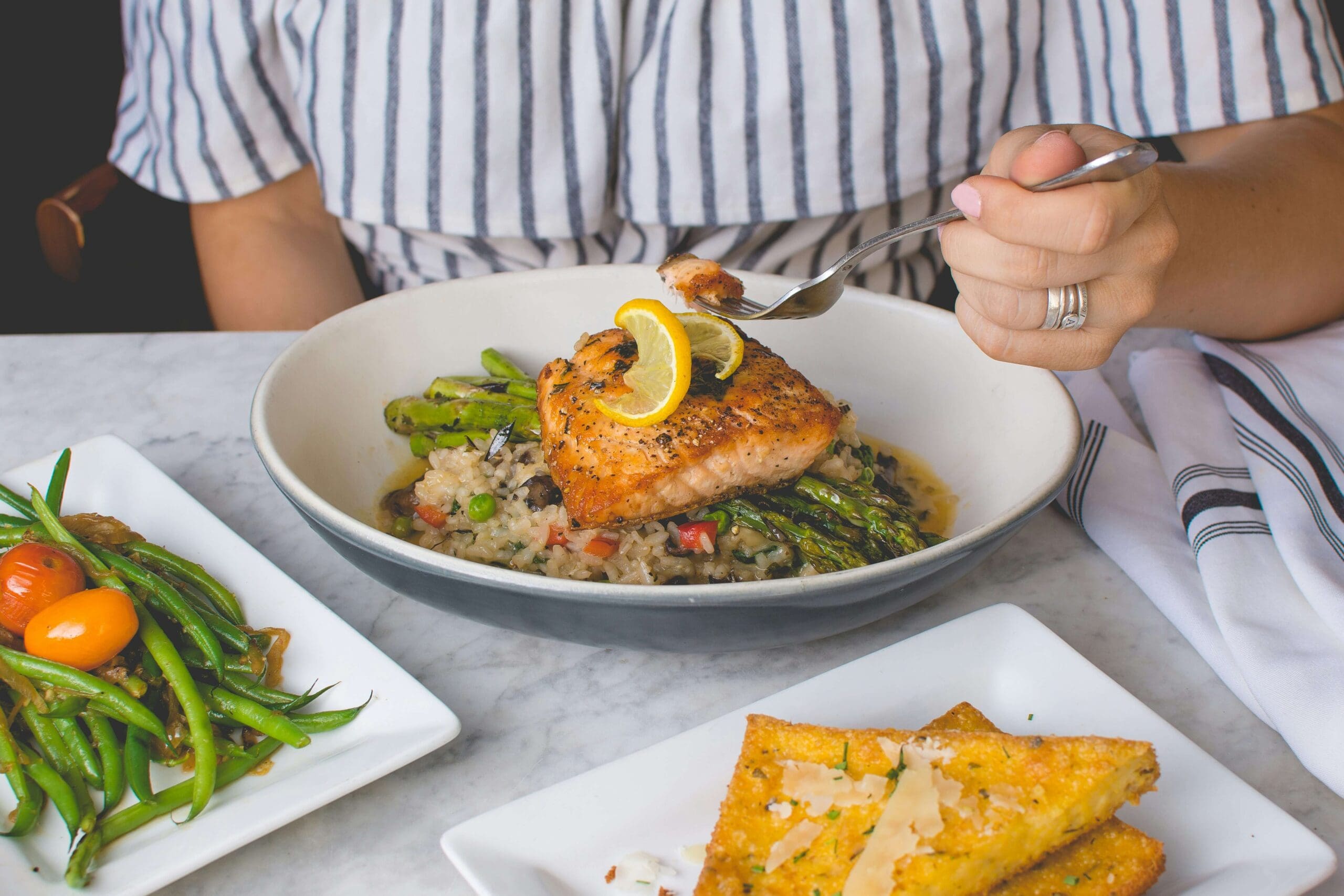You’ve probably seen the posts flooding your social media feed. Headlines screaming that lemons cure cancer better than chemotherapy. Messages claiming this miracle fruit is being hidden by doctors who profit from expensive treatments.
As your oncology dietitian, I’m here to cut through the noise and give you the real science about lemons and cancer. The truth is both simpler and more empowering than these viral myths suggest.
Lemons are absolutely wonderful for your health, packed with vitamin C and beneficial compounds that support your body in real ways. But they’re not a cancer cure, and believing they are can actually put your life at risk.
Let me show you what lemons can actually do for you, what the research really says, and how to enjoy citrus fruits as part of your cancer-prevention lifestyle without falling for dangerous misinformation.
Get Your Free Clean Scan Plan!
If you’re in treatment and tired of conflicting food advice, the Clean Scan Plan gives you clarity and calm. Learn what truly supports your strength, energy, and healing with my NED 5 pillar method when it comes to nutrition and lifestyle changes without restriction or overwhelm.
Lemons Do NOT Cure Cancer
Let me be crystal clear from the start: lemons are not a substitute for conventional cancer treatment. I’ve worked with thousands of cancer survivors over my 15 years as an oncology dietitian, and one of the most dangerous myths I encounter is this claim that lemons can cure cancer.
They cannot. Cancer treatment requires a multidisciplinary medical approach including surgery, chemotherapy, radiation therapy, immunotherapy, and other evidence-based interventions depending on your cancer type and stage.
No single food can cure cancer, no matter what you read online. This myth has caused real harm to real people who delayed proper medical treatment, believing citrus fruits would save them.
One of my clients came to me after spending six months drinking lemon water instead of starting chemotherapy. Her cancer had progressed significantly. That’s why I’m so passionate about busting these myths.
If you’re ready for expert, personalized support, apply here for: VIP 1:1 Cancer nutrition & Lifestyle Coaching with me today so you don’t waste another month stuck guessing what’s right for your body or getting confused and lost with social media posts that are steering you in the wrong direction.
8 Science-Backed Reasons Why Lemons Cannot Treat Cancer
As your cancer dietitian, I need you to understand exactly why the lemon cure myth is so dangerous. The science is clear, and I’m going to walk you through each reason why lemons simply cannot treat or cure cancer. This isn’t about taking away hope. It’s about protecting you from misinformation that could cost you your life.
- Lack of Clinical Evidence: Zero credible clinical studies support lemons or lemon-based products as cancer treatment. None. The research simply doesn’t exist.
- Complex Nature of Cancer: Cancer has multiple causes and mechanisms. No single food can address the complexity of cancer cell growth, spread, and resistance to treatment.
- Chemotherapy and Radiation Therapy Effectiveness: Medical professionals use chemotherapy and radiation as well-established treatments because they target cancer cells directly and have been rigorously tested for safety and effectiveness.
- Absence of Therapeutic Anti-Cancer Compounds: While lemons contain vitamin C and beneficial flavonoids, they lack compounds proven to eliminate cancer cells at the concentrations you’d get from eating them.
- Cancer Progression: Cancer typically progresses over time. Delaying proper medical treatment while trying alternative remedies allows the disease to advance to later stages, making it much harder to treat.
- Harmful Consequences: Relying solely on unproven treatments leads to delayed diagnosis and treatment, potentially worsening your condition and reducing survival chances.
- Patient Safety: Cancer treatment safety and efficacy must be assessed and monitored by qualified healthcare professionals. Lemon-based treatments aren’t regulated or monitored like pharmaceuticals.
- Scientific Consensus: Leading cancer organizations including Memorial Sloan Kettering Cancer Center, Cancer Research UK, and the National Center for Health Research universally recommend evidence-based treatments as the standard of care.
In my programs and 1:1 coaching, I show survivors how to separate fact from fiction. You deserve to make informed decisions based on real science, not social media myths.
What Makes Lemons Healthy? (Without the Cancer-Cure Hype)
Lemons are genuinely nutritious and deserve a place in your diet. One lemon provides about 34 milligrams of vitamin C, roughly one-third of your daily needs. Vitamin C acts as a powerful antioxidant, protecting your cells from oxidative damage by free radicals.
They also contain beneficial plant compounds called flavonoids, including hesperidin and naringin, which have anti-inflammatory properties. The citric acid in lemons helps your body absorb iron from plant foods more effectively.
These are real, measurable benefits that support your overall health. What lemons don’t do is cure cancer. There’s a huge difference between supporting your immune system and eliminating cancer cells.
One of my survivors told me she felt so much freedom when she realized she could enjoy lemon water for its refreshing taste and vitamin C benefits without expecting it to keep her cancer from returning. That’s the kind of balanced relationship with food I want for you.
Take Control of Your Nutrition Journey
Stop second-guessing every food choice. My Clean Scan Plan has helped thousands of cancer survivors navigate nutrition with confidence and clarity.
Can Lemons Be Part of a Cancer-Prevention Diet?
Absolutely! Lemons fit beautifully into a cancer-prevention lifestyle when you have realistic expectations. The Mediterranean diet, consistently linked with reduced cancer risk and better overall health, includes regular consumption of citrus fruits.
Notice I said includes, not relies on. It’s the overall dietary pattern that matters. Plenty of vegetables, fruits, whole grains, legumes, nuts, olive oil, and moderate amounts of fish and poultry.
One of my clients was terrified to eat anything after her diagnosis until we worked together. She’d cut out entire food groups based on Dr. Google’s advice. When I showed her how to build a flexible, enjoyable eating pattern that included foods like lemons for flavor and nutrition, not as medicine, she finally found peace around food.
That’s what evidence-based nutrition looks like. You don’t need perfection. You need balance, variety, and the confidence to trust your food choices.
How to Include Lemons in Your Diet Safely?
The best part about lemons is how versatile they are in your everyday cooking. I’m going to share the practical ways I recommend adding lemons to your meals, not as medicine but as a delicious, nutritious ingredient that makes healthy eating more enjoyable.
- Squeeze fresh lemon juice over fish, chicken, or vegetables for bright flavor
- Add lemon slices to water for a refreshing, sugar-free beverage
- Use lemon juice in homemade salad dressings instead of vinegar
- Zest lemon peel into yogurt, oatmeal, or baked goods for extra flavor
- Make a simple lemon-garlic marinade for proteins
- Blend lemon into smoothies with other fruits and vegetables
The goal is enjoyment and nutrition, not trying to achieve therapeutic effects. Lemons add flavor, making healthy foods more appealing. That’s valuable in itself.
What Cancer Patients Should Know About Lemons?
During treatment, lemons can actually help with certain side effects. Many of my clients undergoing chemotherapy experience taste changes. Food might taste metallic or bland. The acid in citrus can balance these altered tastes, making food more appealing.
This helps you maintain adequate nutrition during treatment, which directly impacts your outcomes. However, chemotherapy sometimes causes mouth sores as a side effect. If you’re experiencing this, avoid citrus completely because the acidity can be painful and irritating.
Trust Science, Not Social Media
No human clinical trials have proven lemons treat or cure cancer. As your oncology dietitian, I want you to feel empowered by accurate information, not paralyzed by myths and misinformation.
Work on yourself, build a flexible, enjoyable eating pattern that includes a variety of fruits and vegetables, including lemons if you enjoy them. Focus on sustainable lifestyle habits that support your long-term health.
You don’t need miracle foods. You need personalized support and that’s exactly what I help my clients achieve in my coaching programs, and it’s what I want for you too.
Ready to Feel Confident About Your Nutrition After Cancer?
If you’re ready to move from fear to confidence, the Clean Scan Plan shows you exactly how. Learn the proven, science-backed habits that protect your body and help you feel strong and capable again.
Yes! Send Me the Free Clean Scan Plan
References
- https://www.sciencedirect.com/science/article/abs/pii/S104366182100013X
- https://pubmed.ncbi.nlm.nih.gov/27457064/
- https://www.mskcc.org/cancer-care/integrative-medicine/herbs/d-limonene
- https://pmc.ncbi.nlm.nih.gov/articles/PMC9043650/
- https://www.center4research.org/lemons-prevent-cancer/
- https://news.cancerresearchuk.org/2013/09/13/miracle-cancer-cures-ask-for-evidence/
- https://www.mayoclinic.org/diseases-conditions/cancer/expert-answers/alternative-cancer-treatment/faq-20057968






